Unlocking the past: Contact 6 tests three popular DNA kits
MILWAUKEE — A glimpse into the past using DNA. These days more and more people are choosing to unlock their family history by taking genetic tests. There are a number of tests, but does it matter which one you buy? FOX6's Contact 6 put three popular brands to the test -- AncestryDNA, Family Tree and 23andMe.
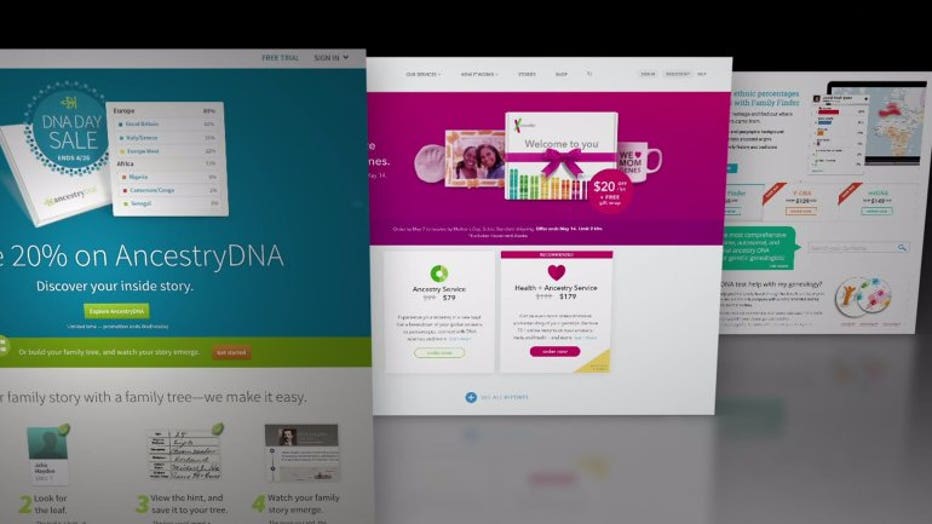
Robert Smith, an associate professor at University of Wisconsin-Milwaukee, agreed to help out Contact 6 and be the test subject.
"I'm curious because if we have the technology now to trace in that respect, I have to know," Smith said.
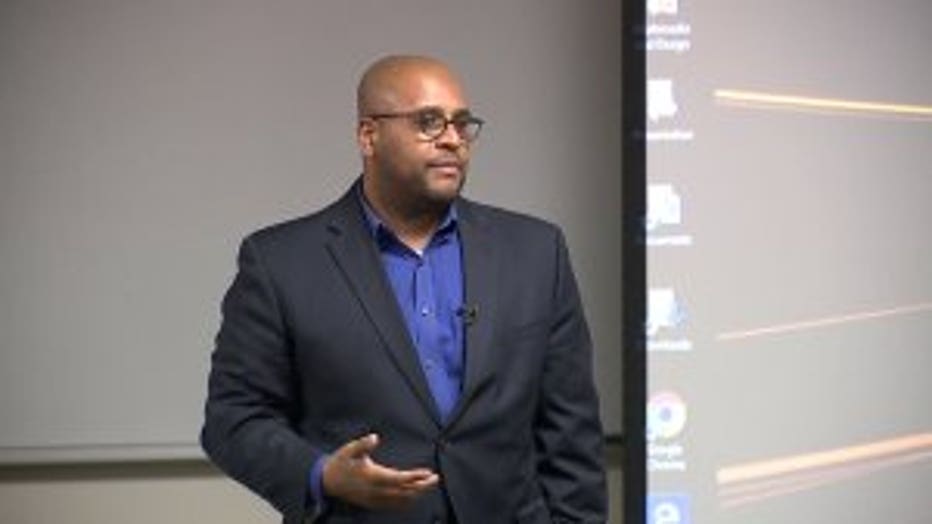
Robert Smith is an associate history professor at UW-Milwaukee.
Smith teaches history. So, it's interesting that he knows very little about his ancestral origins.
"I would assume from my darker skin that I have some amount of African-ness in me, but to what degree? But to what extent?" Smith wondered.
Contact 6 ordered three different tests. The AncestryDNA kit and the 23andMe kit both cost $99. The Family Tree kit usually costs $79, but Contact 6 got it on sale for $59.
For AncestryDNA and 23andMe, Smith had to fill a tube with spit.
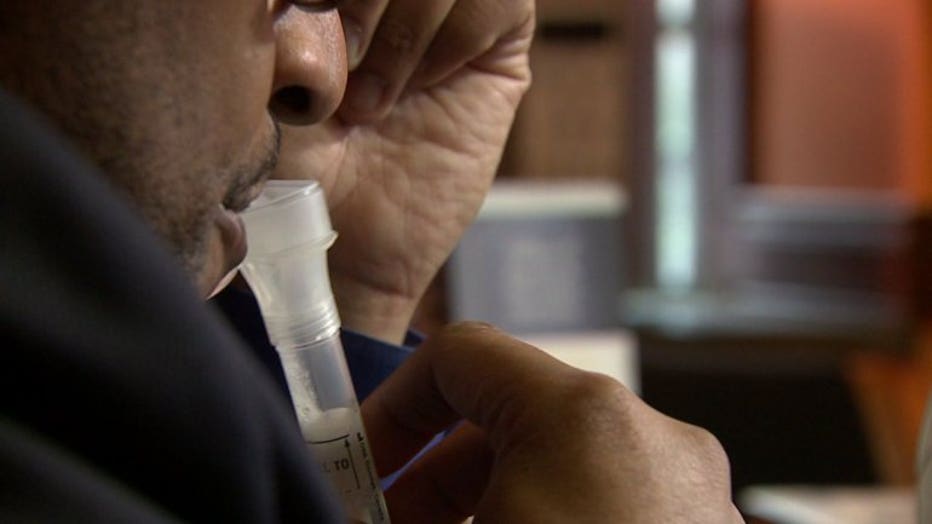
Robert Smith fills a tube with spit to collect samples for 23andMe and AncestryDNA tests.
For the Family Tree test Smith used two swabs to scrape the inside of both cheeks.
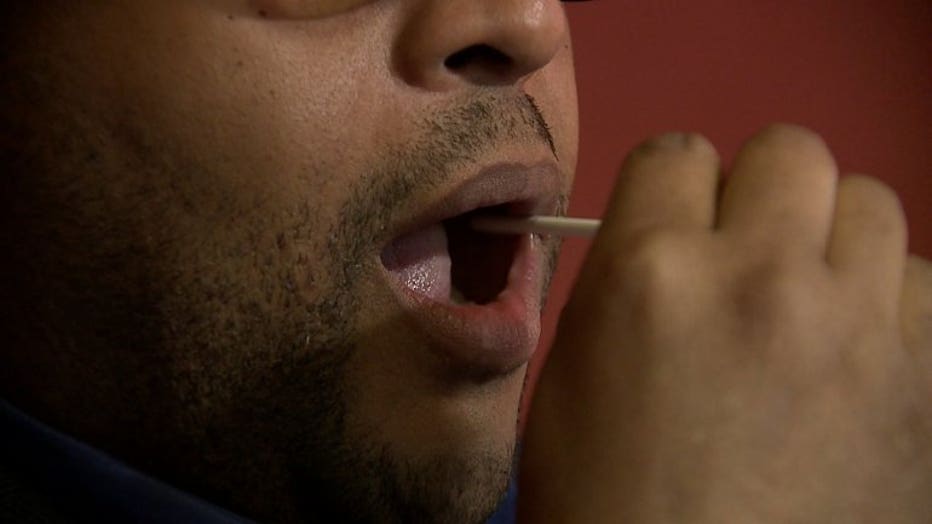
Robert Smith swabs both sides of his mouth to collect a sample for the Family Tree DNA test.
Once the samples were collected, Contact 6 registered the tests online and mailed them.
Five weeks later, all three labs respond. Two of Smith's reports are ready. However, the AncestryDNA test had an error and needs to be redone. The company sends a free replacement kit and Smith retakes the test.
The second test from AncestryDNA took a couple months to process because it was sent in after Christmas and the lab says it was swamped.
More than two months later, it's time to share the results.
Contact 6 found the three tests were fairly consistent.
All three tests found Smith is about 73 percent African. More specifically, the tests reveal his roots are primarily west African -- about 65 percent.
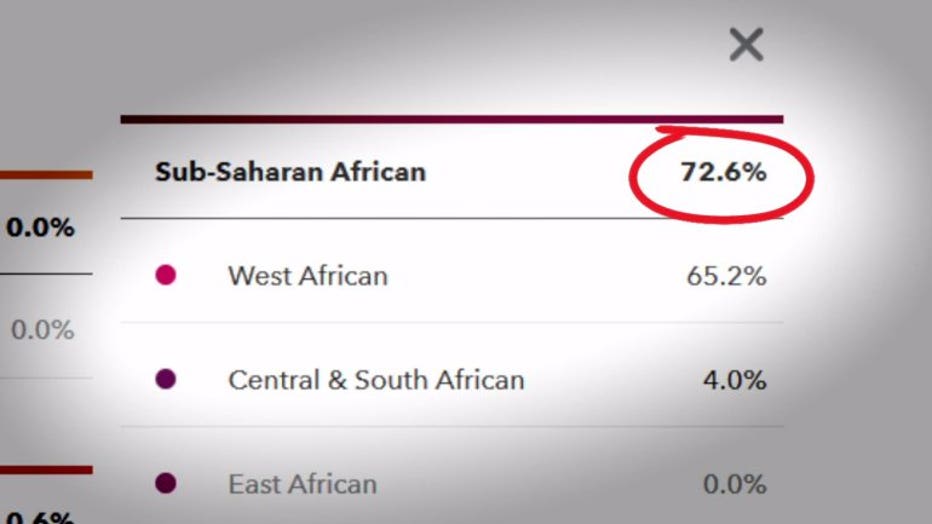
AncestryDNA was the most specific.
"They broke it down as 25 percent Nigerian, 20 percent Cameroon or the Congo, 14 percent Senegal and, then, 12 percent Ivory
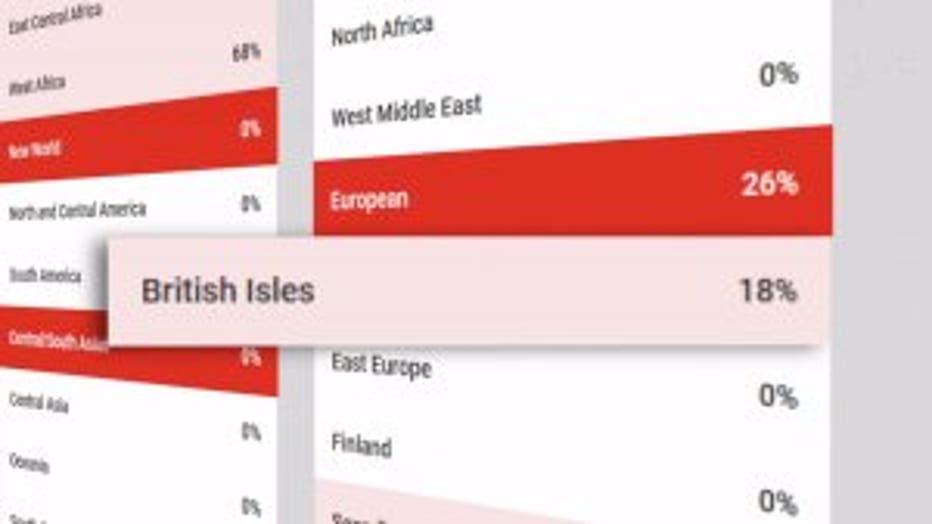
Coast/Ghana," Contact 6's Jenna Sachs revealed to Smith.
"That's really interesting," Smith responded.
The tests, also, found Smith 23 to 26 percent European -- primarily the British Isles.
"Some of the tests found you are about 15 percent Irish," Sachs told Smith.
"That's interesting. I didn't expect Irish," Smith said.
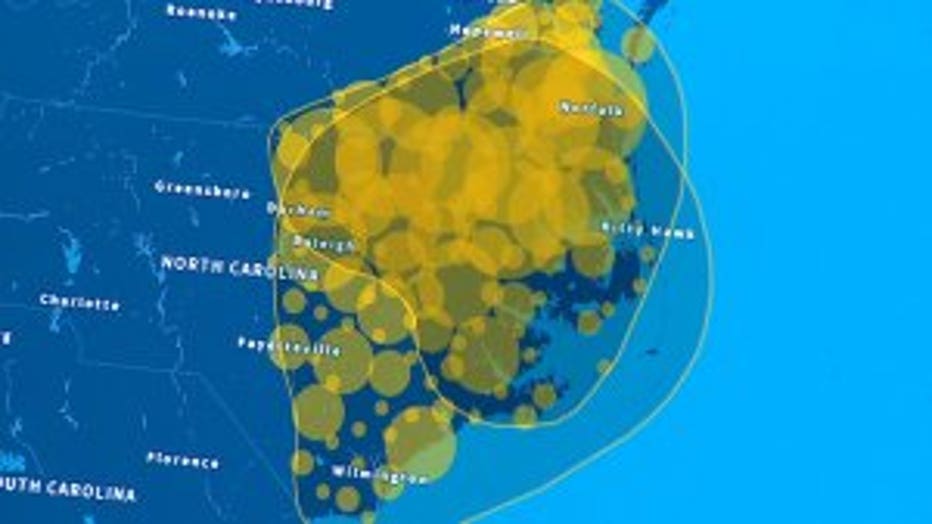
The tests can be explored more online.
On AncestryDNA's website, Smith learned his ancestors were likely among African slaves brought to North Carolina.
On Family Tree's website, a family finder tool correctly connected Smith to relative he knows and a
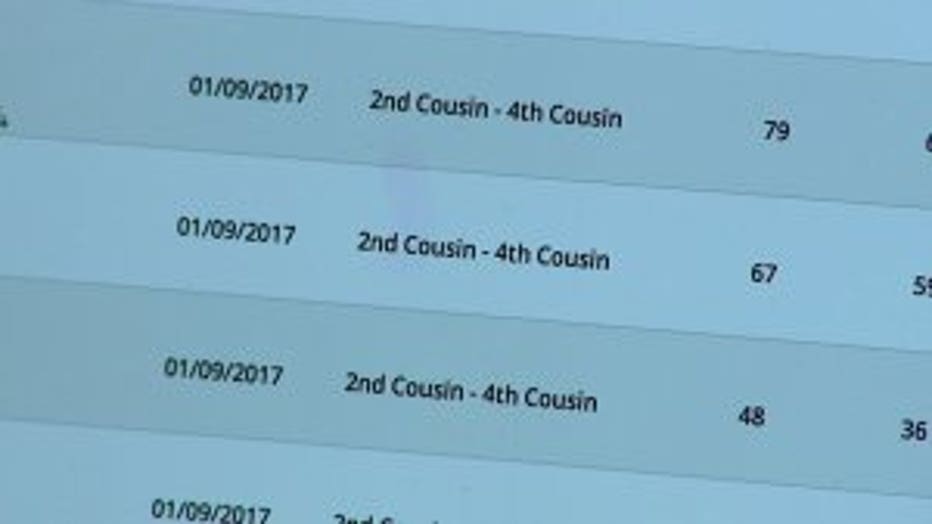
few he doesn't.
The experience only reaffirmed Smith belief that American identities are a lot more complex and connected than many people think.
"This is all very important in determining where one sits in the world," Smith said.
Contact 6 reached out to each company to ask about the tests and the experience with each one.
Ancestry gave more insight into why the retake test took so long to get back and more information about their services. The company sent the following statement.
"Due to the incredibly high volume of kits we received after the holidays, lab processing is taking longer than the typical 6‑8 weeks. We are working to reduce wait times, and are happy to announce that we recently opened an additional lab to expand our capacity to process and analyze DNA samples."
Right now, what most people want from a DNA kit is the chance to better understand themselves and get some sense of an answer to the question of ‘Who am I?’ That’s a powerful, emotional thing, and Ancestry wants to make that experience as rich and rewarding as possible. Ancestry DNA has the world’s largest consumer genomics network with more than 3 million people. This network in combination with the billions of records and millions of family trees on Ancestry enables us to provide people with deeply meaningful insights about who they are and where they come from. As the Ancestry DNA database grows, people can greatly benefit as the network effect enables us to deliver insights that are not possible to uncover with smaller databases."
Family Tree sent Contact 6 the following statement about their services:
"Founded in 2000, Family Tree DNA pioneered the field of genetic genealogy—the use of DNA testing to establish relationships between individuals and determine ancestry. As the very first company to develop and deliver direct-to-consumer DNA testing for genealogical purposes, our premier suite of DNA products and tools are designed to help customers uncover family history, find genetic matches and connect with relatives across all of their ancestral lines. What sets Family Tree DNA apart is not only that we established the industry, but the fact that we offer testing for all three types of DNA: Y-Chromosome (paternal), mitochondrial (maternal) and autosomal DNA (a combination of both). Other companies in this space provide only autosomal DNA testing, but our broad selection of Y-DNA, mtDNA and autosomal DNA tests are the most advanced available, and all processed in our own state-of-the-art genomics laboratory in Houston, Texas. While other companies have a single database for finding DNA matches, Family Tree DNA has the world’s most comprehensive DNA matching database, covering Y-DNA, mtDNA and autosomal DNA matches. By combining a wide range of DNA products with cutting-edge technology, we provide industry-leading tools for consumers to explore their family history and gain further insight into their genetic ancestry—and all with a simple swab of DNA. "
23andMe sent Contact 6 the following statement about their services:
"23andMe is the first and only genetic service available directly to consumers that includes reports that meet FDA standards for clinical and scientific validity. We offer our Ancestry Service as a standalone product for $99 USD. The service features 23andMe’s pioneering Ancestry Composition analysis, enabling customers to trace their lineage to 31 populations worldwide through their DNA. The service also includes DNA Relatives, an optional tool matching willing customers with close or distant relatives based on shared DNA. Ninety-five percent of 23andMe customers participating in DNA Relatives connect with a third degree cousin or closer relative. And for customers interested in ancient ancestors, our Neanderthal report tells people how much Neanderthal DNA they have. The genetic ancestry service analyzes genetic variants across all chromosomes to provide a breakdown of global ancestry by percentages. The average customer can trace their DNA to at least 5 different populations from around the world. Customers will also have their 23 pairs of chromosomes “painted” — a color-coded digital sketch unraveling your DNA, detailing the amount, or length, of specific ancestry on each chromosome. Our flagship Health + Ancestry Service includes the full Ancestry service and an additional 70+ genetic reports on carrier status, wellness and physical traits for $199 USD. We analyze, compile and distill the information extracted from your DNA into reports you can access online. You can learn about your carrier status for certain diseases, like cystic fibrosis or sickle cell anemia. You can also learn how genetics affect your diet, such as caffeine consumption, response to saturated fats, ability to digest lactose, and more. Additionally, we tell you how your DNA influences physical traits, such as muscle type, sense of taste and smell, hair type, eye color, etc. A full list of 23andMe reports is available here. Both products include access to 23andMe Research, where interested individuals can consent to participate in a series of research surveys, from your home computer or mobile device, that can help drive scientific and medical discoveries."

